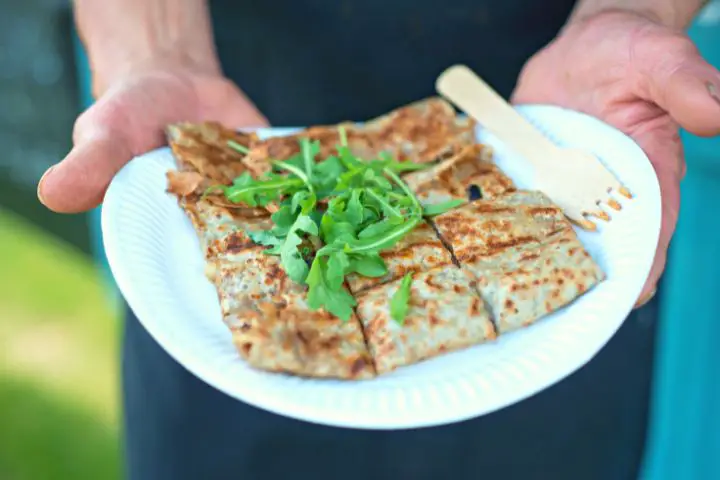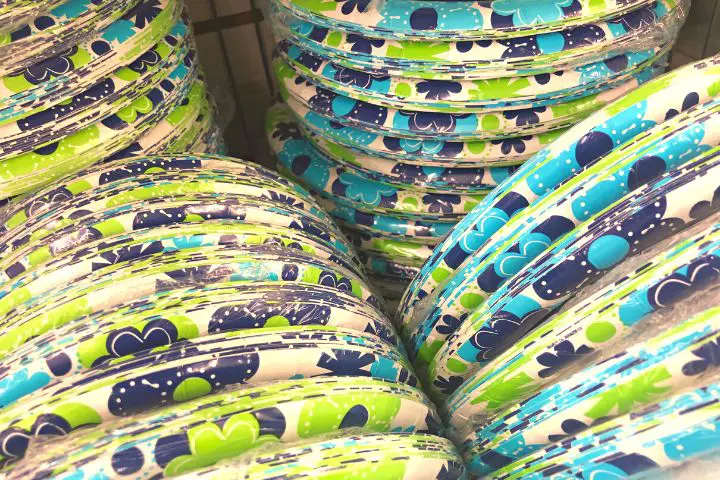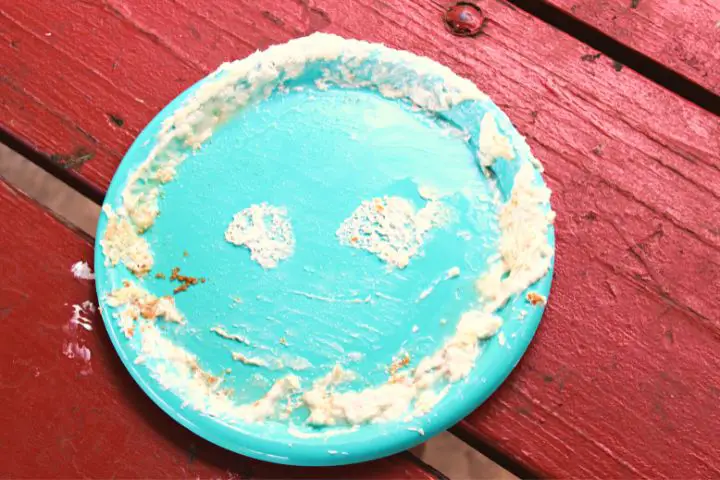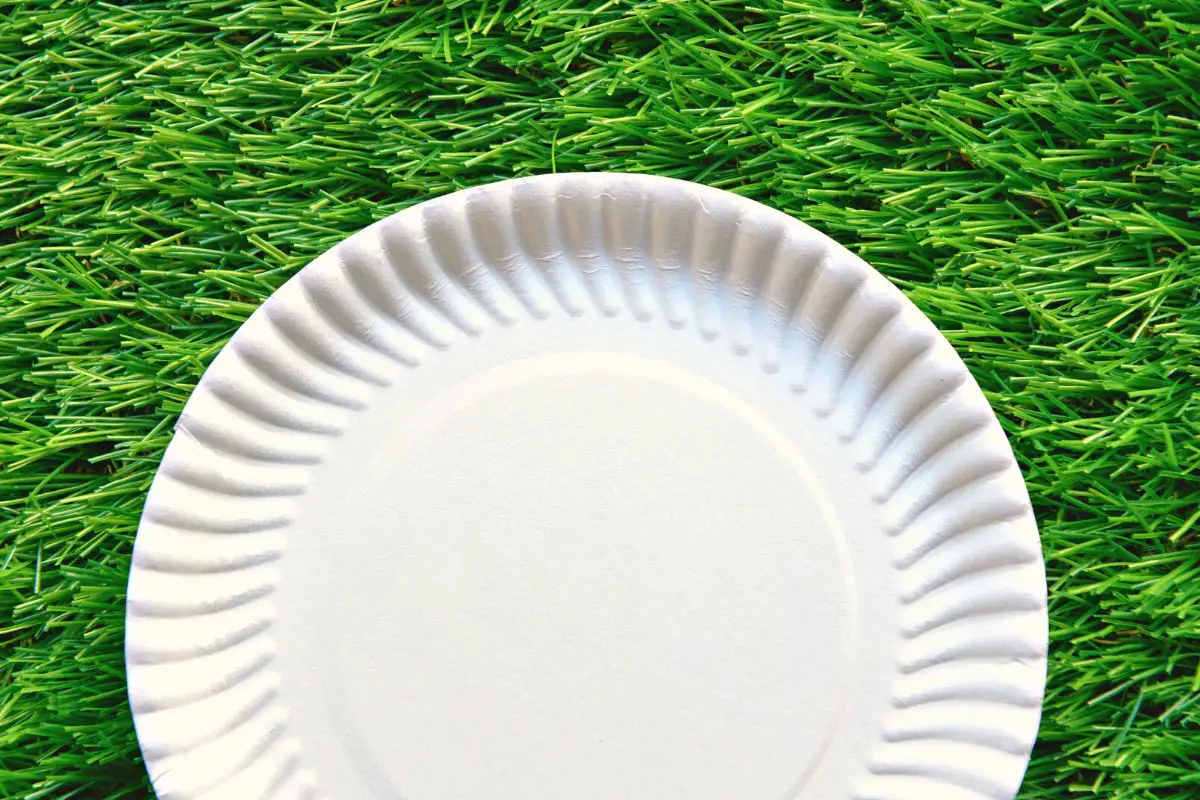Are Paper Plates Compostable? | Some are, Some are not!
When hosting at home, sometimes there simply aren’t enough plates to feed everyone, or you simply don’t want to worry about spending all night washing dishes. While plastic disposables are out of question, paper plates can come to the rescue.
But what do you do with all those plates that cannot be reused? Just throw them down the garbage chute with the rest of the day’s trash?
Lucky for us, most paper plates are indeed compostable, so don’t toss them into the garbage just yet!
Keep reading for tips to know before starting on your composting or bokashi journey.
Related Article: Shredded Cardboard For Compost
Can you compost paper plates?
Composting is a great way to reduce your waste, and you can do it from the comfort of your home. Most paper plates are perfectly fine for composting. In fact, they are a great ‘brown item’ for compost and they provide a good amount of carbon, while ‘green’ products. That is, they make a great source of carbohydrates for the organisms to feed on. This is important because an ideal ratio of brown to green items is necessary for effective composting. Too little or too much of either will either prevent your waste from breaking down or kill essential microbes.

While paper plates are an ideal addition to your compost bin, there are however a few types of paper plates which should not be composted.
Which paper plates are not compostable?
Polycoated paper plates
These paper plates are coated with a thin layer of plastic to increase their durability. They are able to keep oils and moisture out so the plate stays in better condition. However, while they might be reusable for a few more dinners because of the plastic, they definitely cannot go in your compost pile.
Chemical covered paper plates
Many paper plates, including those claiming to be biodegradable, have been found to have PFAS (Per- and Polyfluoroalkyl Substances), chemicals that are also meant to keep oils and moisture out of the plates to increase their shelf life. However, these chemicals are not only terrible for your health, but also do not break down in the environment and would be absolutely disastrous for composting.
Colored paper plates
Colored paper plates may look appealing, but be warned – that color comes from somewhere and it is not natural. If your paper plate is colored or even printed, high chances are that the ink or dye used contains chemicals that are not ideal for healthy compost.

How to compost paper plates
There are many different ways you can get started on composting, but there are a few specific things to check before you compost your paper plates.
First things first – you’ll want to assess what foods have just been consumed on your paper plates. Because along with your plate, you can just as easily compost any leftovers rather than throwing them out.
While most foods are safe to compost, a few key foods you’ll want to avoid are:
- Meat
- Dairy
- Fats
- Oils
So if you’ve just hosted a thanksgiving lunch or dinner, you’re much better off eating those delicious leftovers rather than trying to compost them! The scent of the above foods can attract outdoor animals, pests and other bugs who are just itching for their next meal – let’s make sure it’s not in your garden or home.
Next, you’ll want to ensure your plates are in the most effective shape for breaking down. Shredding the plates provides the best result, but tearing them into smaller pieces will also work well.
If the plates are dirty, you’ll want to add them to the middle of your compost pile. This is because the food residue makes them more of a green item and these are ideal for the middle where the pile is the ‘hottest’ because that is where they will decompose faster. If they’re relatively cleaner, you’ll be alright leaving them around the top of the pile too.

If you take care of all the above, you’re on your way to having an excellent composting journey!
Frequently Asked Questions
Are paper plates recyclable?
The short answer is that most paper plates are not recyclable. If you happen to find extremely durable paper plates which have managed to keep out all food residue or you’ve only used them for light, dry snacks, then you can reuse them yourself at home. But for the most part, your paper plates will have to end up in the trash or in the compost pile if they’re compost-friendly.
Are Dixie paper plates compostable?
The company states that Dixie Ultra Paper Plates are recyclable and compostable and meet the Sustainable Forestry Initiative (SFI) Certification standards. That being said, this is likely the case if you recycle or compost commercially. If you compost at home, you’ll find that these plates take very long to break down, which is not ideal for keeping a healthy compost pile.
Are chinet paper plates compostable?
Chinet paper plates perform much better than other brands. While their packaging may state that they should be commercially composted, many people have found that they break down in a home compost pile within a few weeks without hiccups. So, these might be your new favorite purchase!
Can paper plates be added to a worm bin?
If you’re already familiar with composting and have a worm bin set up in your home, feel free to throw your shredded or torn paper plates into that bin. However, in this case you have to be even more careful of leftovers and residue, as worm bins are much more sensitive to these.






